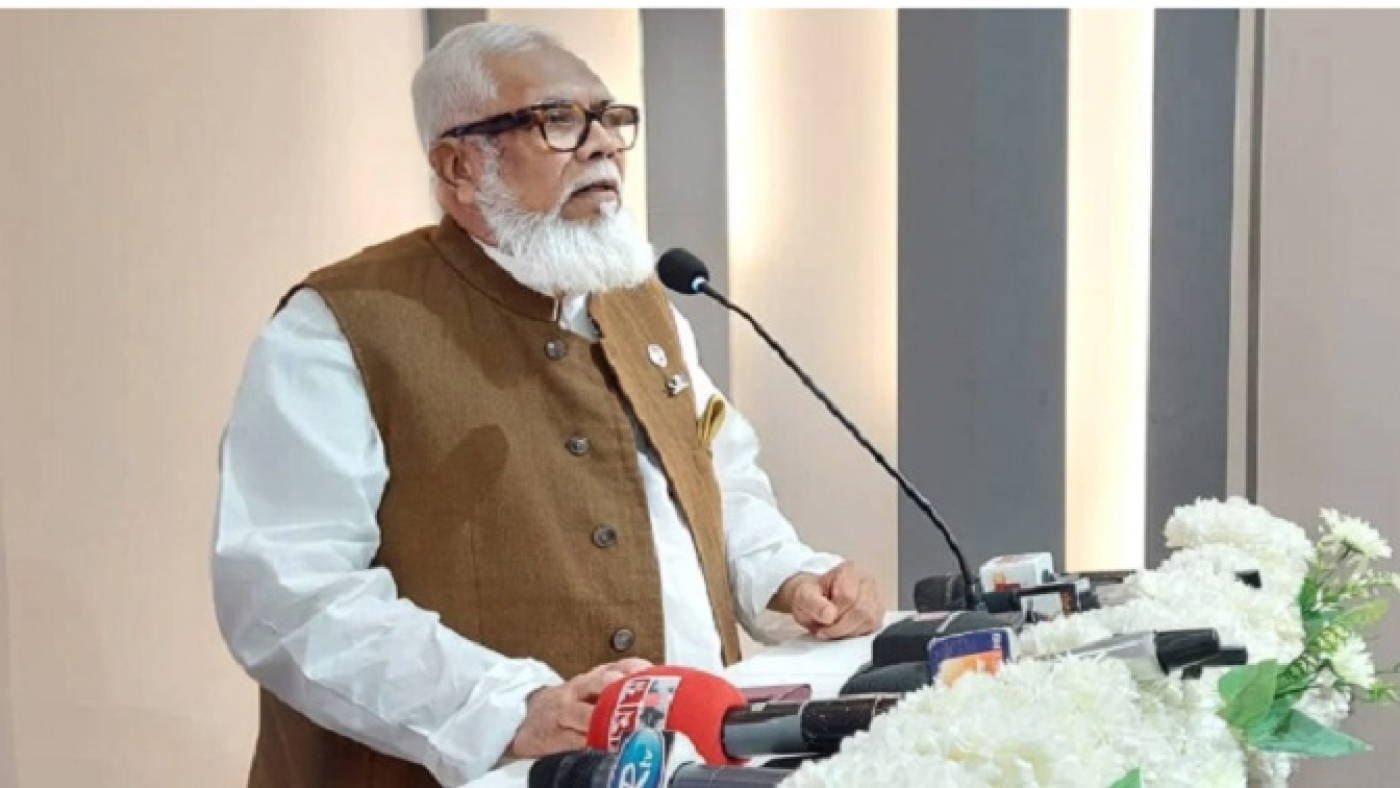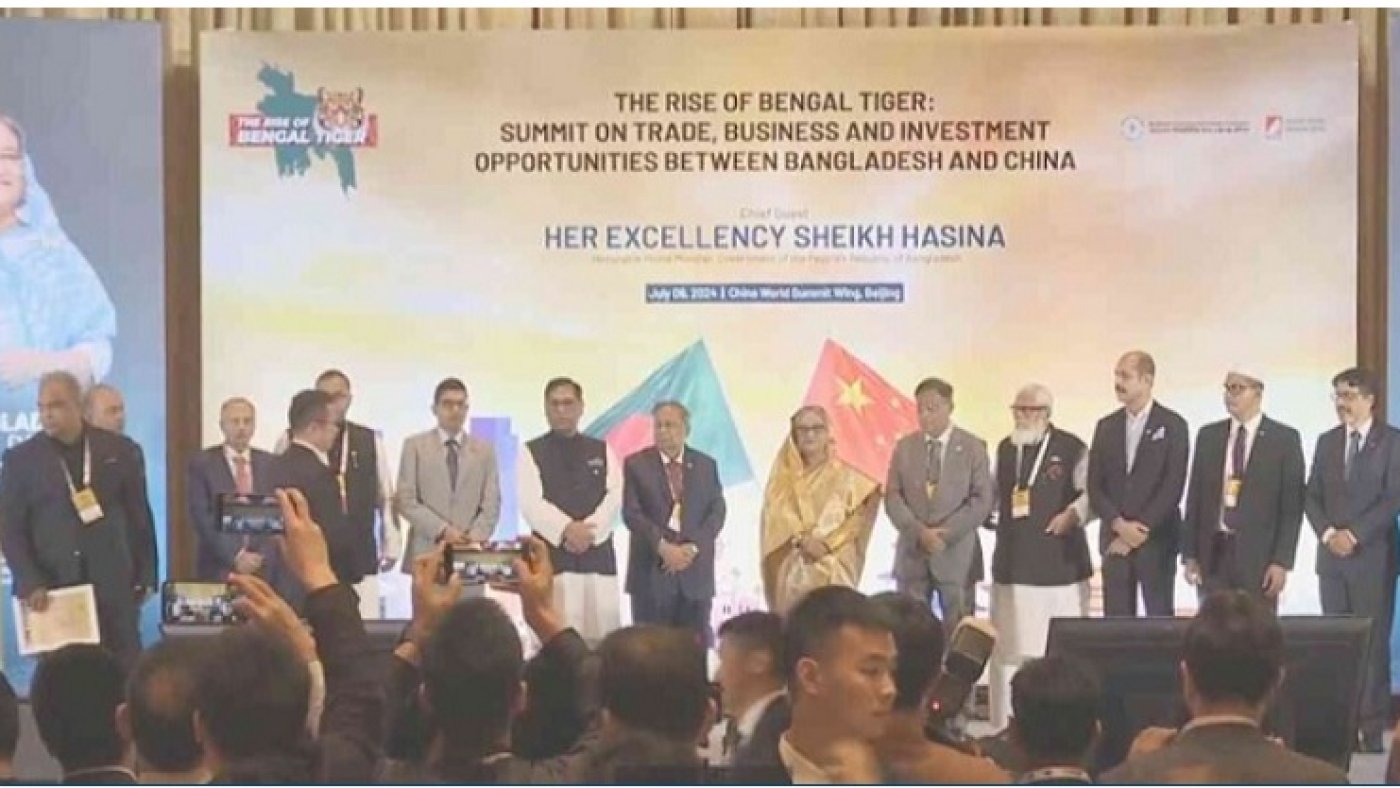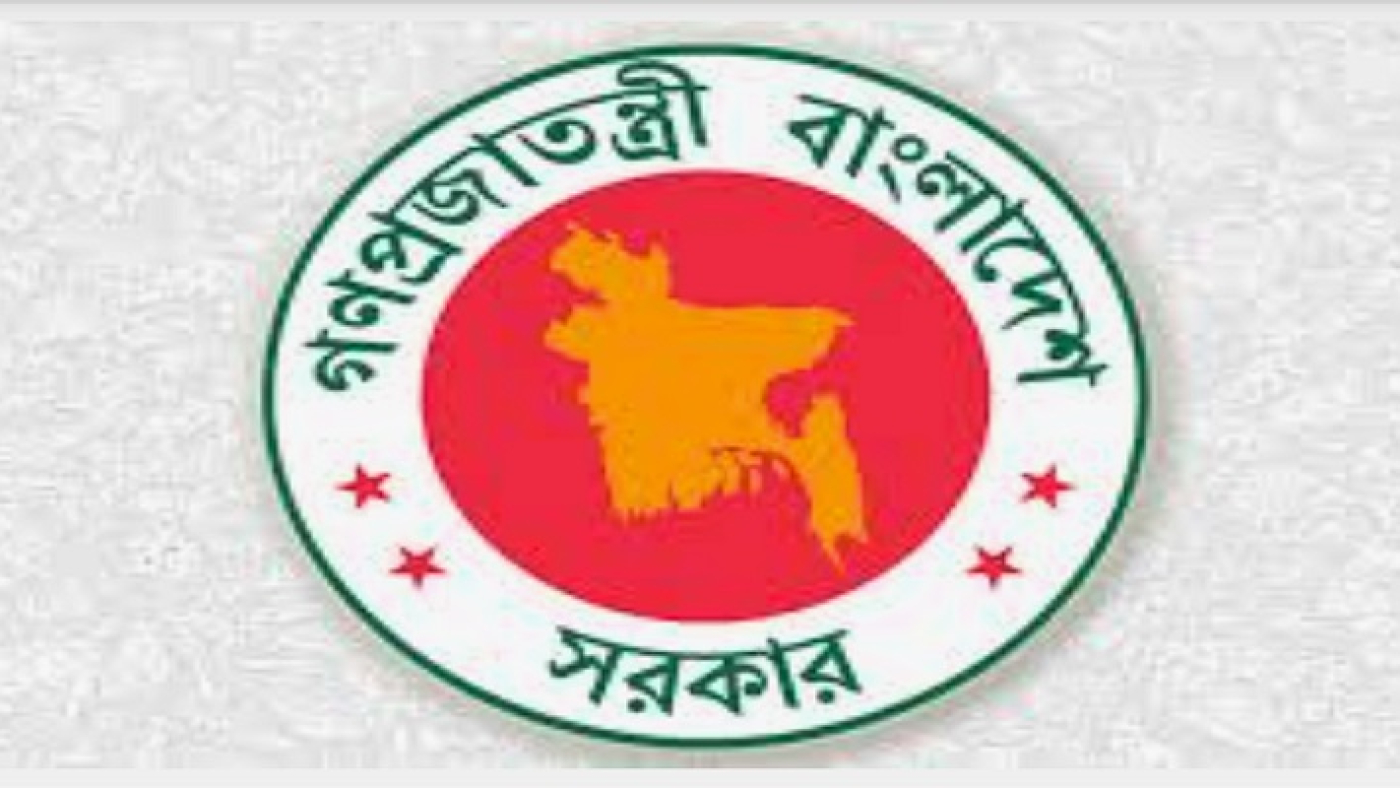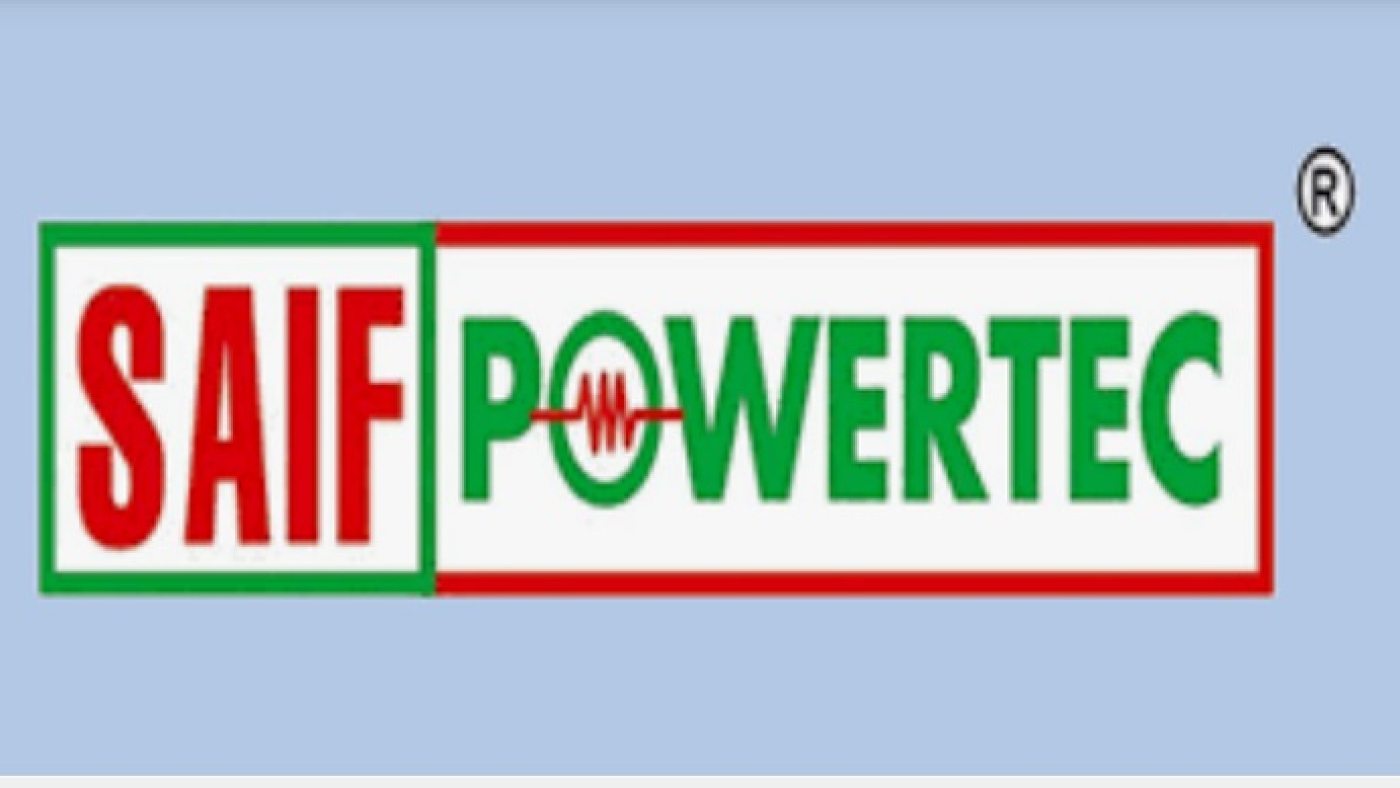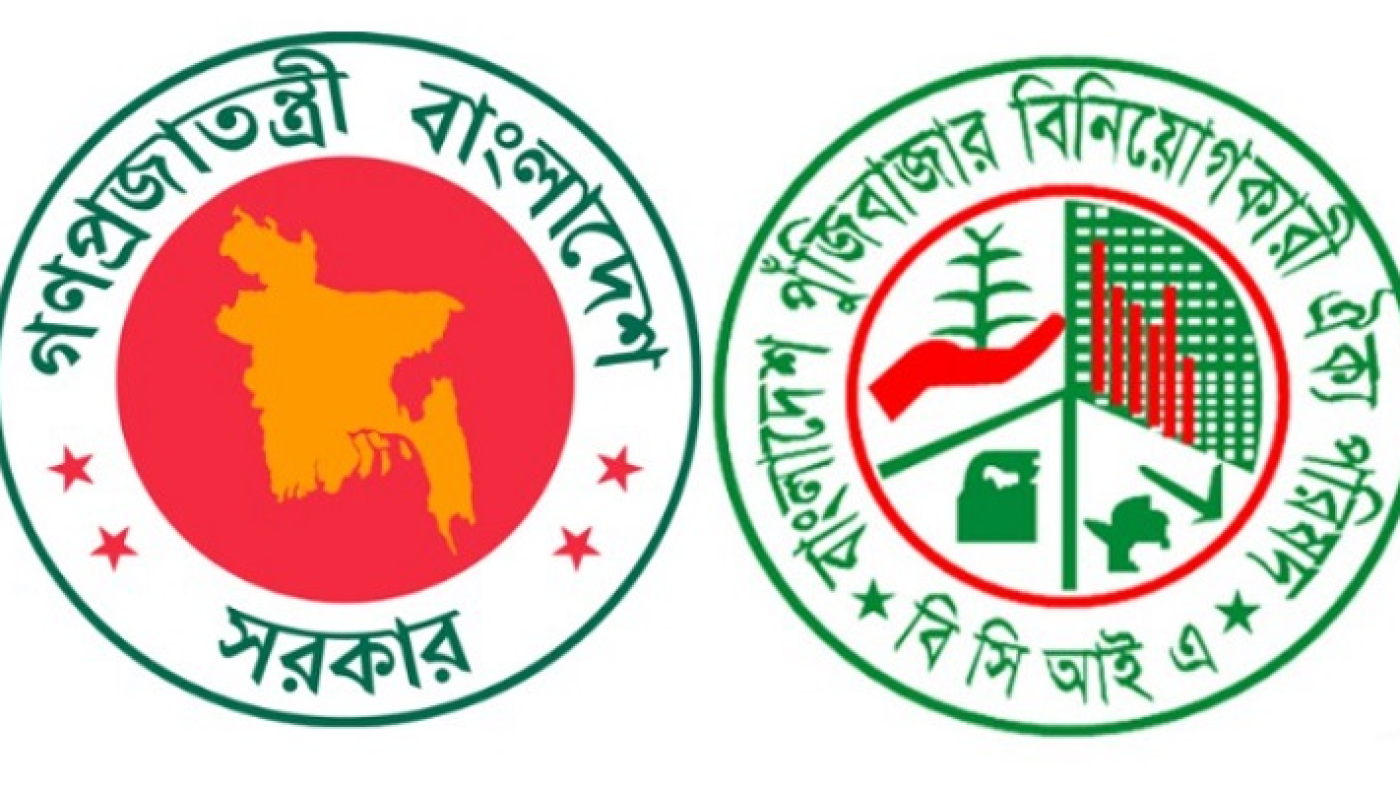বিশেষ প্রতিবেদন : প্রধানমন্ত্রী শেখ হাসিনার চীন সফরের সময়ে তাঁর উপস্থিতিতে বাংলাদেশের ১০টি কোম্পানির প্রতিনিধির সঙ্গে চীনের বিভিন্ন কোম্পানির ১৬টি সমঝোতা স্মারক ও চুক্তি সই হয়েছে।
আজ মঙ্গলবার (০৯ জুলাই) স্থানীয় সময় সকাল সাড়ে ১০টার দিকে ‘দ্য রাইজ অব বেঙ্গল টাইগর: সামিট অন ট্রেড, বিজনেস অ্যান্ড ইনভেস্টমেন্ট অপরচুনিটিজ বিটুইন বাংলাদেশ অ্যান্ড চায়না’ শীর্ষক এই সামিট শুরু হয়েছে। সামিটে প্রধান অতিথি ছিলেন প্রধানমন্ত্রী শেখ হাসিনা।
চীনের বিজনেস সামিটে মোট ১৬টি সমঝোতা স্মারক ও চুক্তি সই হয়েছে বেসরকারি পর্যায়ে। চীন ও বাংলাদেশের বিভিন্ন কোম্পানির মধ্যে এসব সমঝোতা ও চুক্তি দুই দেশের মধ্যেকার ব্যবসায়িক সম্পর্ককে আরও জোরদার করবে বলে মনে করছেন সংশ্লিষ্টরা।
যে ১৬টি সমঝোতা চুক্তি হয়েছে সামিটে
নগদ ও হুয়াওয়ে টেকনোলজিস (বাংলাদেশ) লিমিটেডের মধ্যে একটি সমঝোতা স্মারক সই হয়েছে, যেখানে স্মার্ট বাংলাদেশ গড়তে নতুন প্রজন্মের ডিজিটাল আর্থিক প্ল্যাটফর্ম গড়ে তুলতে কৌশলগত অংশীদারিত্বের অংশ হিসেবে প্রায় ৫০ মিলিয়ন ডলারের বিনিয়োগ হবে বাংলাদেশে।
বাংলাদেশের শেয়ারবাজারের ডিজিটাল রূপান্তরের প্রক্রিয়ায় ২০ মিলিয়ন ডলার বিনিয়াগের একটি সমঝোতা স্মারক সই হয়েছে ডিইএক্স বাংলাদেশ টেক লিমিটেডও ও হুয়াওয়ে টেকনোলজিস (বাংলাদেশ) লিমিটেডের মধ্যে।
বাংলাদেশ চাইনিজ আর্থিক ও শিল্প এলাকায় বিনিয়োগ অবকাঠামোবিষয়ক একটি সমঝোতা স্মারক সই হয়েছে চায়না রোড অ্যান্ড ব্রিজ করপোরেশন (সিআরবিসি) ও নিংবো সিক্সিং কোম্পানি লিমিটেডের মধ্যে।
মোংলা অর্থনৈতিক অঞ্চলে ৩৩ একর জায়গাজুড়ে বৃহত্তম পিএসএফ ও পেট বোতল উৎপাদন কারখানা টেক্সটাইল গ্রেড কারখানা স্থাপনের জন্য ৪০০ মিলিয়ন ডলার বিনিয়োগের জন্য সমঝোতা হয়েছে দেশবন্ধু গ্রুপ কেমটেক্স ও চায়না কেমিকেল সিএনসিইসি’র মধ্যে।
দেশে ইলেকট্রিক গাড়ি উৎপাদনের জন্য একটি সমেঝোতা স্মারক সই হয়েছে বিলিয়ন ১০ কমিউনিকেশন লিমিটেডে ও সিএইচটিসি (হেংইয়াং) ইন্টেলিজেন্ট ইভি কোম্পানি লিমিটেডের মধ্যে।
অন্যদিকে সিলেটে সোলার পার্ক স্থাপনের জন্য সমঝোতা স্মারক সই হয়েছে বিলিয়ন ১০ কমিউনিকেশনের সঙ্গে নিংবো সান ইস্ট সোলার কো. লিমিটেডের মধ্যে।
বিলিয়ন ১০ কমিউনিকেশন আরও দুটি সমঝোতা স্মারক সই করেছে। এর মধ্যে হেশেং (হোশাইস) সিলিকন ইন্ডাস্ট্রি কোম্পানি লিমিটেডের সঙ্গে নবায়নযোগ্য শক্তি এবং ঝোংকে গুয়োরুই (ঝুহাই) নিউ ম্যাটেরিয়াল টেকনোলজি কোম্পানি লিমিটেডের সঙ্গে সমঝোতা হয়েছে ওয়েস্ট লুব্রিক্যান্ট অয়েল রিকভারি অ্যান্ড রিফাইনিং বিষয়ে।
দুটি সমঝোতা চুক্তি করেছে ইবি সলিউশন লিমিটেড। তারা হংজি ইন্টেলিজেন্ট ট্রান্সপোর্ট কোম্পানি লিমিটেডের সঙ্গে সমঝোতা স্মারক সই করেছে ঢাকা শহরের জন্য মোবাইক প্রকল্প নিয়ে। আর নিংবো শেরিং নিউ এনার্জি টেকনোলজি লিমিটেডের সঙ্গে সমঝোতা স্মারক সই করেছে স্মার্ট কোল্ড চেইন লজিস্টিক সলিউশন নিয়ে।
এ ছাড়া স্থল ও জল পথে সিএনজি পরিবহণে কারিগরি ও আর্থিক বিনিয়োগ খাতে ২০ মিলিয়ন ডলার বিনিয়োগের একটি সমঝোতা স্মারক সই হয়েছে ইন্ট্রাকো রিফুয়েলিং স্টেশন পিএলসি এবং শিঝুয়াং এনরিক গ্যাস ইকুইপমেন্ট কোম্পানি লিমিটেডের (সিআইএসমসি এনরিক) মধ্যে।
এককভাবে সর্বোচ্চ পাঁচটি সমঝোতা স্মারক সই করেছে দেশের অন্যতম শিল্প গ্রুপ নিটল নিলয় গ্রুপ। জিবো জিনহুয়াটেং পেপার মেশিনারি কো. লিমিটেড, চায়নার সঙ্গে পেপার মেশিনারি খাতে বিনিয়োগ; ঝেংঝো ডংফেং মিড-সাউথ এন্টারপ্রাইজ কো. লিমিটেড, চায়নার সঙ্গে টিবিআর টায়ার প্রকল্পে বিনিয়োগ; এবং শ্যাংডং সুনাইট মেশিনারি কো. লিমিটেড, চায়নার সঙ্গে অ্যারিয়েটেড অটোক্লেভ কংক্রিট (এএসি) ব্লক খাতে বিনিয়োগের জন্য সমঝোতা করেছে কোম্পানিটি।
এ ছাড়া রাবার মেশিনারি খাতে বিনিয়োগের জন্য নিটল নিলয় গ্রুপ সমঝোতা স্মারক সই করেছে দালিয়াম হুয়াহান রাবার অ্যান্ড প্লাস্টিক মেশিনারি লিমিটেডের সঙ্গে। আর লিথিয়াম ব্যাটারি ও ইলেকট্রিক যানবাহনের জন্য তারা সমঝোতা স্মারক সই করেছে জেডপি টেকনোলজিস (আনহুই) কো. লিমিটেড, চায়নার সঙ্গে।
প্রধানমন্ত্রী শেখ হাসিনার চীন সফর সামনে রেখে অর্থ মন্ত্রণালয়, বাণিজ্য মন্ত্রণালয়, পররাষ্ট্র মন্ত্রণালয়, বাংলাদেশ সিকিউরিটিজ অ্যান্ড এক্সচেঞ্জ কমিশন (বিএসইসি), বাংলাদেশ বিনিয়োগ উন্নয়ন কর্তৃপক্ষ (বিডা), বাংলাদেশ চায়না চেম্বার অব কমার্স অ্যান্ড ইন্ডাস্ট্রি (বিসিসিসিআই) ও বেইজিংয়ে বাংলাদেশ দূতাবাস যৌথভাবে এই ট্রেড অ্যান্ড ইনভেস্টমেন্ট সামিট আয়োজন করেছে।
অর্থমন্ত্রী আবুল হাসান মাহমুদ আলী, পররাষ্ট্রমন্ত্রী হাছান মাহমুদ, প্রধানমন্ত্রীর বেসরকারি বিনিয়োগ ও শিল্পবিষয়ক উপদেষ্টা সালমান এফ রহমান, বাণিজ্য প্রতিমন্ত্রী আহসানুল ইসলাম টিটু, ডাক ও টেলিযোগাযোগ প্রতিমন্ত্রী জুনাইদ আহমেদ পলক, ঢাকা উত্তর সিটি করপোরেশনের মেয়র আতিকুল ইসলাম, বাংলাদেশ-চায়না চেম্বার অব কমার্সের সভাপতি গাজী গোলাম মর্তুজা পাপ্পাসহ সামিটের আয়োজক সংস্থাগুলোর প্রতিনিধিরা এ সময় উপস্থিত ছিলেন।
এএসএম/
সূত্রঃ শেয়ার নিউজ






